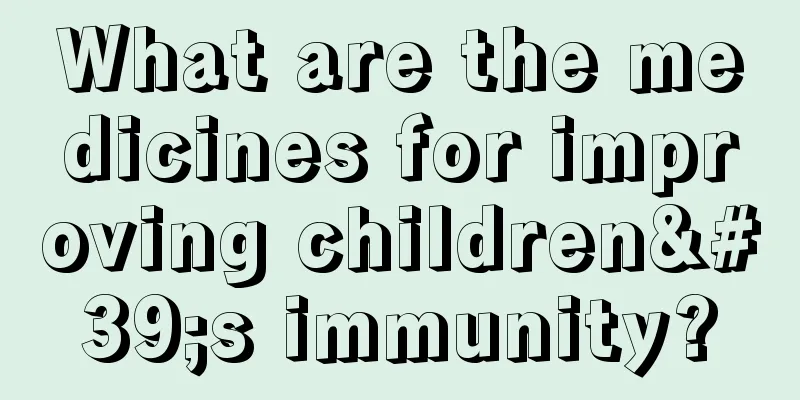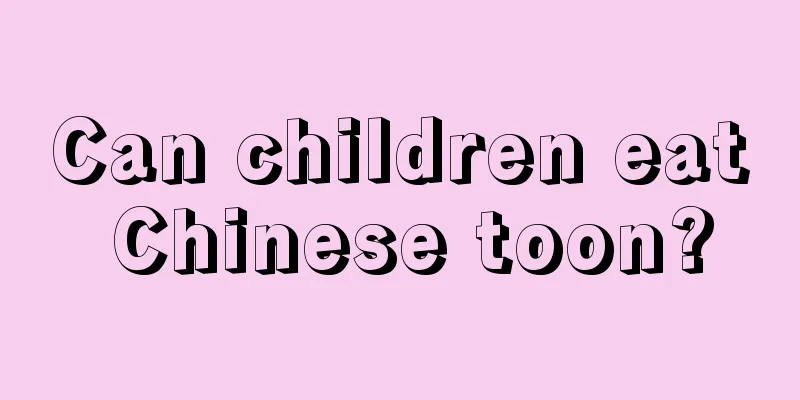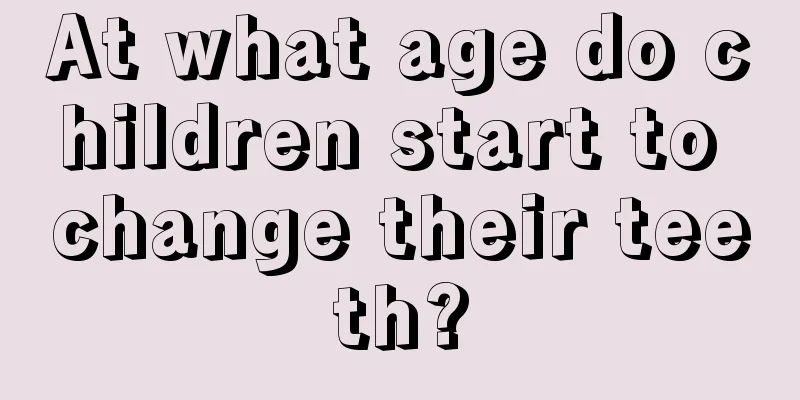What causes effusion?

|
Hydrocephalus is a common disease in children. It belongs to the urinary system. If the disease is serious, it will affect the growth and development of the child's testicles. It will not only delay the development of the child's sexual organs, but also affect the reproductive function. Therefore, many parents will pay special attention to their children when they have hydrocephalus, fearing that it will affect the development of their children's sexual organs. So what is the cause of hydrocephalus? Hydrocele in children is called "water hernia" in traditional Chinese medicine. The incidence of unclosed processus vaginalis in newborns in my country is 80% to 94%, but it can gradually close with age, and the possibility of closure becomes increasingly smaller after 6 months after birth. Long-term chronic hydrocele can have an adverse effect on the blood supply and temperature regulation of the testicles due to the high tension. Severe cases may cause testicular atrophy. If the effusion is severe and affects both testicles, it is likely to affect the child's future fertility. There is currently no specific Western medicine for the treatment of this disease, and surgery is often used to treat hydrocele.Causes There are two types of hydrocele: primary and secondary. The etiology of the primary disease is unclear, the course of the disease is slow, and pathological examination often shows chronic inflammatory reaction of the sheath. Secondary cases are accompanied by primary diseases. For example, acute cases are seen in orchitis, epididymitis, testicular torsion, trauma or high fever, heart failure and other systemic diseases. Chronic cases usually have no obvious causes and can sometimes be seen after chronic scrotal injuries or local surgeries such as inguinal lymph node and vein resection. They may also be complicated by certain diseases in the scrotum, such as tumors, tuberculosis, syphilis, etc. In tropical areas and southern my country, filariasis and schistosomiasis can also cause hydrocele. Infantile hydrocele is associated with patent processus vaginalis and delayed development of its lymphatic system. The right testicle descends slightly later than the left, and the processus vaginalis is also closed later, so infantile hydrocele is more likely to occur on the right side than on the left side. According to the location of the hydrocele and the closure of the processus vaginalis, it can be divided into five types: testicular hydrocele, spermatic cord hydrocele, mixed type, communicating hydrocele and infantile hydrocele.
When children develop hydrocele, it is usually a cystic tumor in the scrotum or spermatic cord. Most children do not feel any discomfort. The size can vary greatly, and most are oval. The scrotal skin of primary hydrocele is normal, has high tension and is translucent. Congenital hydrocele can be squeezed out when the patient lies flat, so that the fluid can gradually shrink or even disappear completely. Most hydroceles are unilateral. In the case of secondary hydrocele, we should be alert to the presence of lesions in the testicles and epididymis, such as tuberculosis, tumors, and parasitic infections. Differential Diagnosis Hydrocele in children should be differentiated from hernia in treatment. The fluid in most children's hydrocele comes from the abdominal cavity and is not congenital hydrocele. Once the hernia is treated, the hydrocele will naturally heal. Hernia is a typical symptom of hernia that can be seen and felt. A lump will appear. The lump may disappear during sleep but will become larger during crying. Auxiliary examinations can be used for identification: ① The transillumination test is positive, but it may be negative when secondary inflammation and bleeding occur. ②B-ultrasound examination can further clarify the diagnosis. It helps to differentiate hydrocele, varicocele, testicular torsion, etc., and is also of great significance for secondary hydrocele caused by suspected testicular tumors.
1. Treatment of primary disease It is suitable for patients with a slow course of the disease, little fluid accumulation, low tension and no long-term growth, and no obvious symptoms. After successful treatment of the underlying disorder, a hydrocele often resolves on its own without the need for surgery. In addition, hydrocele in children under 2 years old can often be absorbed on its own and does not require surgery. 2. Surgery (1) Indications for surgery: ① Hydrocele in infants under 2 years old can generally be absorbed on their own, but when the amount of fluid is large and there is no obvious spontaneous absorption, surgical treatment is required. ② For hydrocele in infants under 2 years old, accompanied by congenital groin pain or the possibility of testicular lesions, early surgery is necessary. ③ Patients over 2 years old with communicating hydrocele or larger testicular hydrocele with clinical symptoms affecting their quality of life should be given surgical treatment. However, hydrocele caused by epididymitis and testicular torsion should be excluded. (2) Main surgical method: Surgery is the safest and most reliable method to treat hydrocele. The surgical methods include: testicular tunica vaginalis inversion, testicular tunica vaginalis plication, tunica vaginalis excision, and communicating hydrocele is often treated with an oblique inguinal incision with high cutting and suturing of the processus vaginalis at the internal ring. For spermatic cord hydrocele, the cyst must be completely peeled off and removed. |
<<: Can vitiligo in children be cured?
Recommend
What should I do if children have myopia?
There are many reasons for myopia, including cong...
What is going on when the baby's poop contains blood?
It is not common for babies to have blood in thei...
Why does my baby urinate less and yellower?
You should take comprehensive care of your baby. ...
Where is the best treatment for eczema?
Eczema is a relatively common skin disease. Suffe...
How to diagnose asthma in children? There are three methods
Asthma in children is a disease with a relatively...
How to prevent scars when children fall?
Children are naturally active, so it is inevitabl...
The intelligence performance of 40-day-old infants
A baby's intelligence is a continuous growth ...
Why does my baby not like to eat?
Nowadays every child has become the baby of the f...
Is Jinqiao Granules for Children really good?
Although many people know about different medicin...
White spots on newborn's belly
I believe that many parents will find white spots...
How do children grow taller?
Some children appear shorter than normal children...
What medicine is good for children with otitis media?
Children are a high-risk group for otitis media, ...
How to solve the problem of a five-year-old baby grinding his teeth while sleeping
The problem of five-year-old babies grinding thei...
Which vaccinations are mandatory?
As the name suggests, vaccinations are things tha...
What to do if your child has swollen tonsils? Daily care should be done well
Swollen tonsils are very common among children. I...









